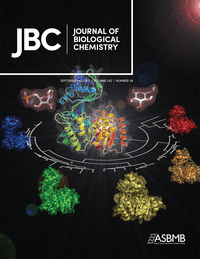 The Journal of Biological Chemistry has added an expression of concern to a 2003 paper that arose from the PhD thesis of a once-prominent — and controversial — science journalist in Australia.
The Journal of Biological Chemistry has added an expression of concern to a 2003 paper that arose from the PhD thesis of a once-prominent — and controversial — science journalist in Australia.
The first author of the paper is Maryanne Demasi, a journalist whose reporting created unintentional headlines in recent years. In 2013, she produced a controversial series about cholesterol and fat (and even cast doubt on cholesterol-lowering drugs known as statins); in 2016, she was fired from the science program Catalyst, after it aired an episode alleging wi-fi could cause brain tumors.
Now, it appears the research community is taking a second look at some of the work underlying her PhD in rheumatology from Royal Adelaide Hospital. Here’s the notice from the journal:
The publisher of the Journal of Biological Chemistry is issuing an Expression of Concern to inform readers that credible concerns have been raised regarding some of the data and conclusions in the article listed above. The Journal of Biological Chemistry will provide additional information as it becomes available.
“Effects of hypoxia on monocyte inflammatory mediator production: Dissociation between changes in cyclooxygenase-2 expression and eicosanoid synthesis” has been cited 37 times, according to Clarivate Analytics’ Web of Science.
The paper is the first publication listed as arising out of her PhD thesis. We contacted the University of Adelaide to inquire whether it was investigating her work and her degree; a spokesperson declined to comment. A representative of the journal said she had no additional information to provide.
We contacted some of the other journals that published papers arising from her thesis; regarding this 2004 paper in Arthritis & Rheumatology, journal editor Richard Bucala told us:
Arthritis & Rheumatology received an inquiry from the University of Adelaide about this matter. The Journal may publish a correction or retraction pending the conclusions reached by the University.
We tried reaching Demasi via the contact page on her website, and sent her a direct message on Twitter. We also emailed last author Michael James, chief medical scientist at the Rheumatology Unit at Royal Adelaide Hospital, but haven’t heard back.
After obtaining her PhD, Demasi worked as a ministerial advisor/speechwriter for the South Australian Science Minister, then dove into investigative journalism, and worked as a TV producer/presenter.
Along with controversy, Demasi has also received many accolades — according to her website, she earned the National Press Club of Australia Prize in 2008, 2009 & 2011 for Excellence in Health Journalism.
But she came under heavy fire in 2016, after a controversial segment suggesting Wifi could cause health effects. As Michael Slezak wrote in The Guardian:
Catalyst committed many journalistic transgressions. And all of them would be blunders in any field of journalism. They didn’t declare that interviewees had serious conflicts of interest, for example. They conflated different categories – high-risk and low-risk patients, different types of radio frequency radiation, and so on – and allowed viewers to assume that what was true of one, was true of the other. And most of all, they simply failed at showing good judgment.
In 2016, the same year she was fired from Catalyst, Demasi lost an attempt to obtain workers’ compensation after she broke her hip while working from home.
Demasi now contributes articles to The Pharmaceutical Journal.
Update, 16:28 UTC, September 27, 2017: Demasi has provided a statement to The Australian:
In a statement, Dr Demasi said she and her four co-authors had been “made aware” of the notification. “All allegations will be vigorously defended,” the statement says.
“We are confident of complete vindication in relation to this matter which we view as vexatious and misconceived. There is a confidential process for adjudication that needs to be respected. Therefore, I shall not comment further on this matter.”
Update, 1530 UTC, October 1, 2017: A commenter at PubPeer has raised questions about some of the images in the JBC paper.
Like Retraction Watch? Consider making a tax-deductible contribution to support our growth. You can also follow us on Twitter, like us on Facebook, add us to your RSS reader, sign up on our homepage for an email every time there’s a new post, or subscribe to our daily digest. Click here to review our Comments Policy. For a sneak peek at what we’re working on, click here.